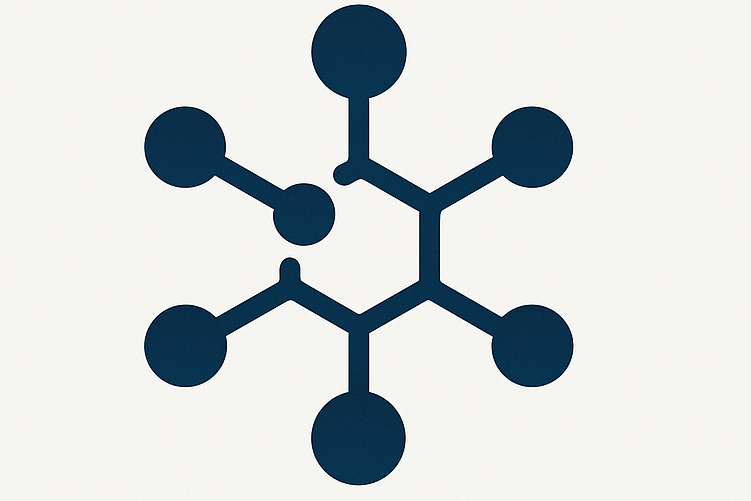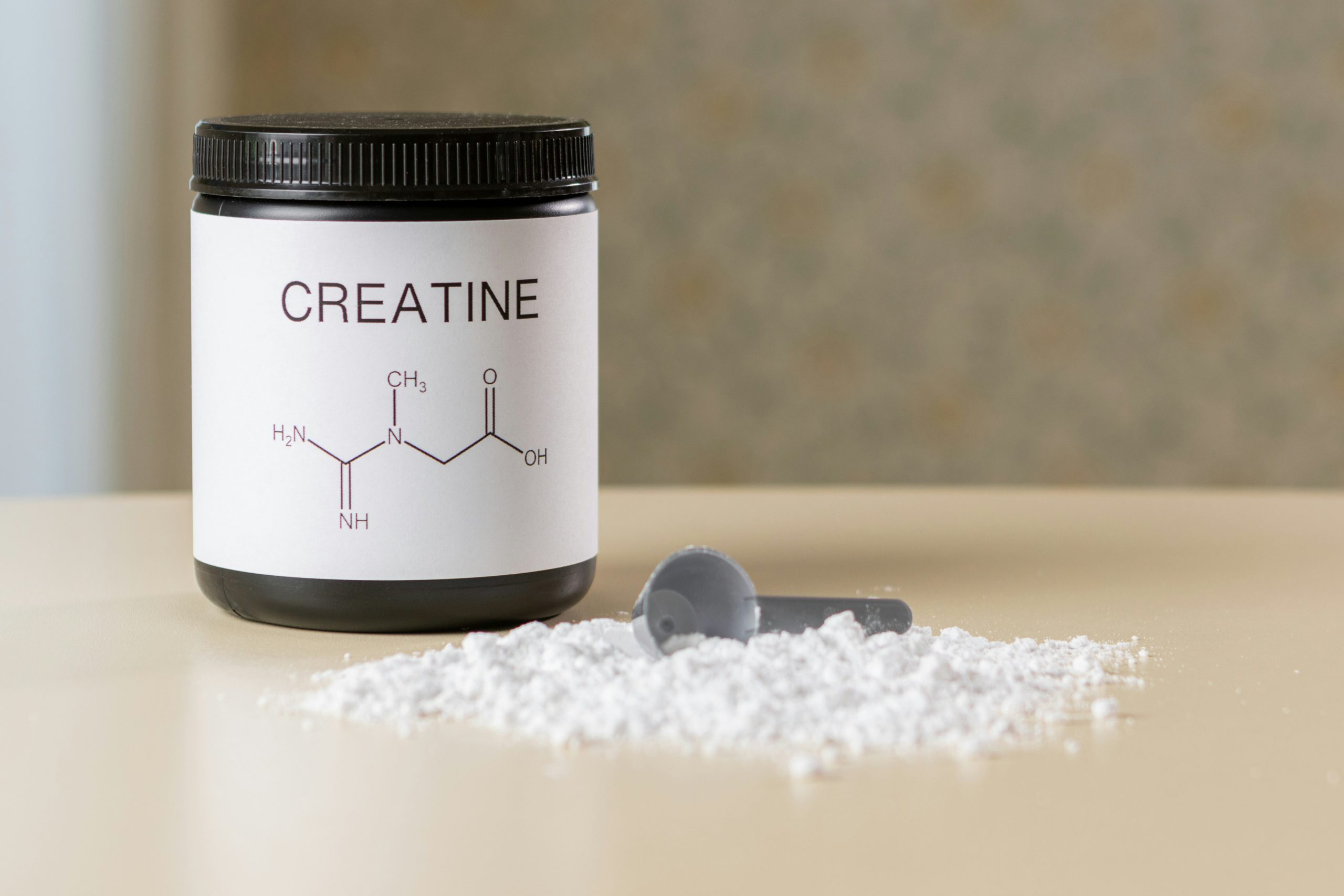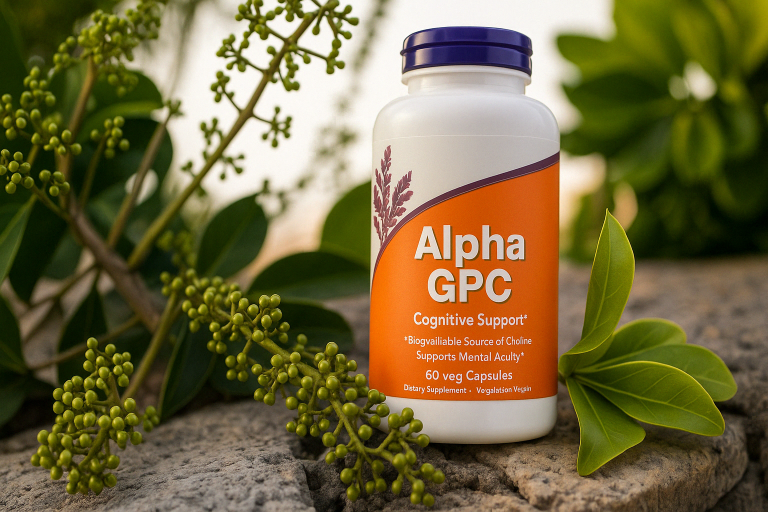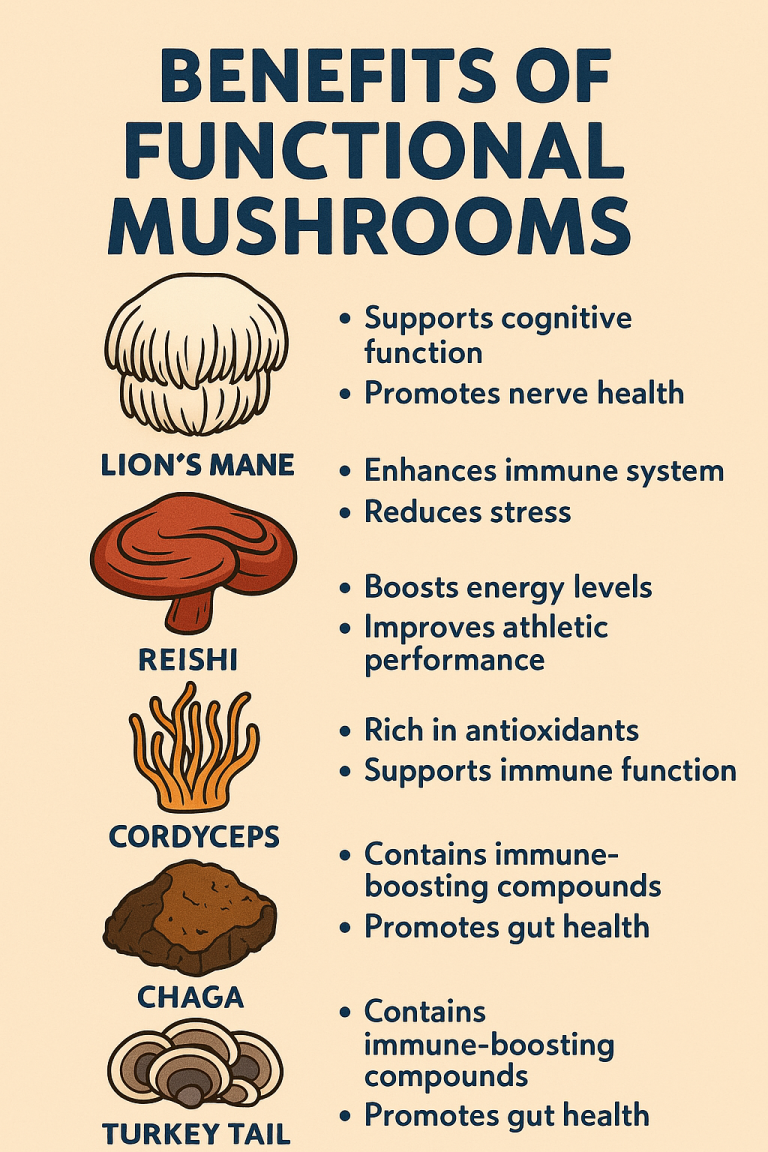Creatine Nootropic: Enhancing Cognitive Performance and Mental Clarity
Many people know creatine for its role in building muscle, but researchers have found that it may also work as a nootropic. Nootropics are substances that can support brain function, memory, and focus.
Studies show that creatine may help improve short-term memory, intelligence, and quick thinking, especially during mental fatigue learn more about creatine’s cognitive benefits.
While creatine is popular among athletes, it’s gaining attention for its possible benefits on the brain. Some evidence suggests creatine can aid with mental clarity and decision making after lack of sleep or stress.
Whether someone is studying for exams or dealing with a busy work schedule, creatine could support mental performance creatine as a nootropic.
Researchers continue to explore how creatine works and who may benefit most from using it for cognition. For adults looking for an easy way to support their brain health, creatine supplement could be a simple option effects on cognitive function in adults.
What Is Creatine?
Creatine is a substance found both in the human body and in certain foods. It is important for energy production, especially in tissues with high demands like muscles and the brain.
Natural Occurrence and Sources
Creatine is naturally produced in the liver, kidneys, and pancreas. The body uses three amino acids—glycine, arginine, and methionine—to make creatine.
People also get creatine from foods, especially animal products. Red meat and fish are both rich sources.
For example, beef and salmon have higher levels compared to chicken or plant-based foods. In an average person, about half of daily creatine needs come from the diet, with the rest made by the body.
Vegetarians usually have lower creatine stores than people who eat meat and fish since plant foods contain very little creatine.
Forms of Creatine
Creatine is available in more than one form as a supplement. The most common and widely studied type is creatine monohydrate.
This form is popular for both effectiveness and its lower cost. Other forms include creatine ethyl ester and kre-alkalyn.
Some claim these other types may have unique benefits, but research shows that creatine monohydrate is usually just as effective and is better supported by evidence. People take creatine in powder, capsule, or tablet form.
It mixes easily with water or juice and is used to support muscle energy and, in some cases, help boost certain brain functions.
Nootropic Properties of Creatine
Creatine has gained attention for its effects on brain function, not just muscle performance. Research shows creatine may support memory, reasoning, and reduce mental fatigue in some situations.
Mechanism of Action in the Brain
Creatine works by increasing energy stores in brain cells. It helps produce adenosine triphosphate (ATP), which is the main energy source for cells, including neurons.
Higher ATP supports faster signal processing and better brain function, especially during periods of high mental effort. By maintaining higher energy reserves, creatine may also reduce oxidative stress, which helps protect nerve cells.
Some brain cells use extra creatine for protection when oxygen is low or during high stress.
Key Points:
- Increases cellular energy (ATP)
- Protects neurons from damage by reducing oxidative stress
- May support brain health during intense cognitive tasks
Learn more about how creatine increases cellular energy and protects against neuron damage at Nootropics Expert’s page on creatine’s effects on the brain.
Cognitive Benefits
Studies link creatine to improvements in several areas, especially for people under mental stress or sleep deprivation. It may help with short-term memory, reasoning, and recognition memory.
It can also support processing speed and attention during demanding tasks. In healthy adults, small doses may boost working memory and intelligence test scores.
Some research suggests it helps people perform better on difficult cognitive tasks, especially when the brain’s energy use is high.
Reported benefits include:
| Cognitive Area | Observed Effect |
|---|---|
| Working Memory | Improved capacity |
| Attention | Greater focus and alertness |
| Intelligence/Reasoning | Modest increases possible |
| Processing Speed | Slight performance boost |
Evidence is mixed for other abilities, but results are strongest in memory and mental processing. More details on performance in cognitive tasks are available from research published in PubMed.
Comparison With Other Nootropics
Creatine stands out because it supports brain energy directly, while other nootropics like choline or l-theanine work differently. Choline is a building block for acetylcholine, vital for memory and nerve signaling.
L-theanine calms the brain and can promote focus without causing drowsiness. Creatine’s main difference is its role in energy production, while choline or l-theanine impact neurotransmitters or relaxation.
Some people use creatine with other nootropics to try and combine different benefits. Unlike stimulants, creatine does not cause jitteriness or dependence.
Some users may find combining creatine with choline or l-theanine supports multiple parts of mental performance, from attention to endurance. A full explanation comparing these nootropics can be found in this guide to creatine and its brain benefits.
How Creatine Supports Cognitive Function
Creatine plays a key role in brain health by supporting mental energy, sharpening focus, and improving memory. The compound helps brain cells work efficiently by aiding energy production and reducing mental fatigue in demanding tasks.
Energy Metabolism in the Brain
Brain cells rely on a steady supply of adenosine triphosphate (ATP) for nearly all cognitive activities. Creatine helps neurons store and recycle energy more efficiently through the phosphocreatine system.
This backup energy source quickly converts adenosine diphosphate (ADP) to ATP when brain energy levels dip. During periods of intense thinking or stress, the rapid demand for ATP goes up.
By increasing brain creatine stores, supplementation can help increase mental energy and sustain cognitive performance. Higher resting creatine may support the brain’s ability to maintain energy metabolism in challenging situations, improving how neurons function and communicate.
Research shows that boosting brain creatine with supplements leads to better cognitive task performance, especially when the brain is under pressure.
Attention and Alertness
Creatine has been linked to better attention span and alertness, especially during fatiguing tasks. Its role in energy metabolism supports neurotransmitter regulation in the brain, which affects focus and mental clarity.
When mental fatigue sets in, the brain struggles to maintain sharp attention. Increased brain creatine helps nerves fire properly and reduces the risk of lapses in concentration.
This extra support allows individuals to remain more focused for longer. Studies confirm that creatine supplementation can reduce mental fatigue and improve sustained attention, making it easier for individuals to stay productive throughout complex mental tasks.
Memory and Retention
Short-term memory and information retention both depend on healthy neuronal function and a constant energy supply. Creatine supplementation helps keep ATP levels up, which supports memory formation and recall.
Higher creatine availability in the brain supports tasks like recognition memory, where the brain must quickly access stored information. Research indicates that oral creatine may improve short-term memory and reasoning as well as overall recall performance.
This makes creatine especially relevant for students, professionals, and anyone looking to support cognitive function during learning or high-stress periods. Enhanced memory function means individuals can learn faster and remember more information when creatine levels are supported.
Benefits of Creatine Supplementation for Mental Performance

Creatine supplementation can affect brain function in different ways, including helping with memory, dealing with mental fatigue, and offering support in certain brain disorders. Studies have found specific benefits for both healthy people and those facing extra mental strain or neurodegenerative diseases.
Effects on Healthy Individuals
Research shows that creatine supplements can help boost mental performance in healthy adults. Improved short-term memory, faster reasoning, and better overall cognitive function are some of the main benefits seen in studies of healthy individuals.
These effects are linked to creatine’s ability to supply extra energy to brain cells by increasing ATP levels. This added cellular energy helps with tasks that require quick thinking, problem solving, and memory use.
For example, creatine supplementation enhances recognition memory and mental processing speed. Healthy people may notice these benefits the most when they are tired, stressed, or working on challenging mental tasks.
Applications in Sleep Deprivation and Fatigue
Short periods of sleep deprivation or intense mental activity can lead to mental fatigue, slower thinking, and memory problems. Creatine supplementation has been studied for its possible use in these situations, since the brain’s need for energy rises when people are tired.
Taking creatine as a dietary supplement may improve how well someone thinks and reacts even after poor sleep. It has been shown to reduce cognitive declines caused by sleep loss and fatigue.
People who experience regular sleep deprivation, like students or shift workers, could see improvements in focus and attention with creatine. These findings make creatine a potential option for anyone looking to keep mental performance steady during extended mental tasks or periods without enough sleep.
Potential for Neurodegenerative Diseases
Early research points to creatine as possibly providing neuroprotective effects for brain conditions like ALS and other neurodegenerative diseases. This could be due to creatine’s role in protecting neurons from damage related to oxidative stress.
Some studies suggest creatine supplements may slow cognitive decline by supporting cell energy and reducing injury to brain cells. It has been explored as an add-on treatment in major depressive disorder and ALS, though more data is needed.
These effects highlight possible uses for creatine in helping people manage or lower risks linked to memory loss and other symptoms in progressive brain diseases.
Creatine for Vegetarians and Vegans

Vegetarians and vegans often have lower creatine levels since this compound is naturally found in animal products like meat and fish. Supplementing with creatine can help maintain normal stores in both the body and brain.
Dietary Considerations
Creatine is made in the body, but most comes from eating animal foods. People who avoid meat, such as vegetarians and vegans, typically have lower creatine stores.
This can affect energy levels during exercise and may influence cognitive function. Foods like plants, fruits, and vegetables do not naturally contain creatine.
Because of this, many vegetarians and vegans use creatine supplements to support their health. Most creatine supplements, especially creatine monohydrate, are synthetic and do not come from animal sources.
This makes them suitable for vegan diets.
A table comparing creatine content in common foods:
| Food | Creatine Content (per kg) |
|---|---|
| Beef | 4–5 grams |
| Fish | 3–5 grams |
| Plants/Vegetables | 0 grams |
Adding a creatine supplement is a simple way for vegetarians and vegans to reach similar creatine levels as those who eat meat. Supplementing also supports muscle function and recovery.
Impact on Cognitive and Physical Performance
Lower levels of creatine in vegetarians and vegans can impact both body and mind. Studies suggest that creatine supplementation may improve short-term memory and problem-solving skills in people with low baseline levels.
These benefits may be greater in those who do not eat meat, since their starting creatine level is often lower. Athletes who are vegetarian or vegan may notice improved strength, power, and exercise capacity after taking creatine.
This supplement can support muscle growth, energy, and faster recovery from workouts. Research also points out that vegans may have less creatine in their muscles, so the effects of supplementation tend to be more noticeable.
For cognitive health, creatine helps supply energy to the brain. Supplementation has been linked to improvements in tasks that require memory and fast thinking, especially in people with a plant-based diet.
Creatine Dosage and Supplementation Protocols
Creatine is most effective when used at the right dosage and timing. It is also influenced by what it is taken with, such as carbohydrates and other supplements.
Recommended Dosages
A common approach is to start with a “loading phase” to saturate muscles with creatine. During this phase, people take about 20 grams daily, split into 4-5 servings, for 5-7 days.
This method helps raise creatine stores quickly. After the loading phase, users usually switch to a lower dose of about 3-5 grams daily.
Some studies suggest that skipping the loading phase and starting with 5 grams per day is also effective, but results may take longer. Buffered creatine or micronized creatine is often used to help reduce stomach discomfort.
However, plain creatine monohydrate remains the most studied form and tends to be just as effective for most people. For cognitive and nootropic benefits, 5 grams per day is a typical dosage recommended in research on creatine as a nootropic.
Maintenance Phase
After any loading period, the maintenance phase involves a steady, daily intake of creatine to keep muscle and brain levels high. Most people take 3-5 grams per day during this phase.
Timing is not as important, but some prefer to take creatine after workouts.
A table can help clarify these phases:
| Phase | Dose (grams/day) | Duration | Notes |
|---|---|---|---|
| Loading | 20 (4x5g) | 5-7 days | Split into smaller doses |
| Maintenance | 3-5 | Ongoing | Once daily |
Taking creatine with carbohydrates, such as juice or fruit, may improve absorption by raising insulin levels. There is no need for cycling or breaks, as long-term use has shown a good safety profile.
Stacking With Other Supplements
Pairing creatine with certain other supplements is popular. Caffeine may slightly blunt the performance boost from creatine in some people, though there is not strong proof that this happens to everyone.
Taking creatine along with carbohydrates can support absorption. Some take it with protein powders or amino acids, but this does not seem to impact effectiveness as much as carbohydrates do.
Buffered creatine is sometimes marketed as less likely to cause bloating. However, research does not show clear advantages over regular creatine monohydrate.
Most evidence supports using plain creatine with foods or drinks that contain carbs for the best results. For nootropics, focus on a consistent daily intake rather than large stacks.
Safety Profile and Side Effects
Creatine is considered safe for most healthy adults when taken at recommended doses. Side effects are usually mild, but some people may notice changes in body water or have concerns about other risks.
Mild and Serious Adverse Events
The most common side effects people report when taking creatine are mild and go away on their own. These can include upset stomach, nausea, muscle cramps, and diarrhea.
Some users notice muscle cramping or digestive discomfort shortly after starting supplementation. There have been rare reports of more serious adverse events, but there is no solid evidence connecting creatine to major medical problems like kidney or liver damage in healthy individuals, according to findings reviewed by WebMD and Mayo Clinic.
For people with pre-existing kidney issues, creatine may not be advisable. It’s best to consult a healthcare professional before starting supplementation, especially if there is a personal or family history of kidney disease.
Water Retention and Bloating
One of the most well-known effects of creatine is an increase in water retention. This happens because creatine pulls water into the muscles, making them look fuller.
Weight gain from water is common during the first few weeks. Some people also experience bloating, especially during the loading phase when higher doses are used.
The degree of bloating can vary by individual, and for some, it may feel uncomfortable. Choosing a lower or regular daily dose can reduce water retention and bloating.
Staying well-hydrated can also help minimize discomfort and lower the risk of muscle cramps. These effects are well-documented by health professionals.
Creatine and Medications
Creatine supplements can interact with certain medications. People who take medicines that affect the kidneys, such as nonsteroidal anti-inflammatory drugs (NSAIDs), diuretics, or drugs for kidney function, should be extra cautious.
There is a small chance that combining creatine with these medications could put more strain on the kidneys. It is important to inform a healthcare professional about any supplements being used, especially if prescription or over-the-counter medications are involved.
No major drug interactions have been clearly proven, but healthcare providers often advise checking before starting creatine, particularly if taking chronic medications or managing health conditions.
Long-Term Safety
Research shows that creatine appears safe when used at recommended dosages—usually up to 5 grams per day—for up to five years in healthy adults. Studies reviewed by the Mayo Clinic and other health organizations have found no consistent evidence of harm from long-term use at these amounts.
There is not enough high-quality evidence on the effects of creatine when taken for longer periods or at higher doses. People with existing illnesses or those taking several medications should talk to a healthcare professional before using creatine for an extended time.
Routine checkups and blood tests may help catch any issues early for people who plan to use creatine long term. Long-term studies are still being conducted.
Creatine’s Role in Physical Performance
Creatine is one of the most studied supplements for improving muscle strength, muscle growth, and overall athletic performance. Research consistently highlights its effect on recovery and fatigue management during exercise and sports.
Muscle Strength and Growth
Creatine helps supply quick energy to muscle cells during short, intense exercises, such as weightlifting and sprinting. By increasing the body’s stores of phosphocreatine, it enables muscles to keep working at a higher intensity for longer.
Studies show that people who take creatine often experience greater increases in muscle mass and muscle strength compared to those who do not supplement. This increase in muscle mass comes from better water retention within muscle cells and faster muscle protein synthesis.
Weightlifters and bodybuilders commonly use creatine to help boost muscle growth and maximize gains. Its effects are especially noticeable in those doing high-intensity resistance training.
Recovery and Fatigue Management
Creatine plays a role in reducing recovery time between workouts. After intense exercise, muscle cells need to replace lost energy quickly.
Creatine supplementation helps speed up this energy restoration process, allowing for shorter breaks and more total work during training sessions. By supporting faster recovery, creatine also helps minimize fatigue.
This can be beneficial for people who do multiple sets, rounds, or training sessions close together. Some studies note decreases in exercise-induced muscle damage and smaller rises in markers like creatine kinase (CK), which signals better recovery.
Athletes who use creatine often report less muscle soreness and improved readiness for their next workout or event.
Athletic Performance in Sports
Creatine is widely used in sports that require bursts of high power or strength. Activities such as sprinting, football, and other team sports often include repeated short, intense efforts.
When taken before or during a training program, creatine can help boost performance in these explosive activities. Athletes tend to see improvements in speed, power, and overall athletic performance.
This boost is linked to higher stored energy in the muscles, which helps with strong, quick movements. Competitive athletes and those in training often rely on creatine to help them achieve better results during events where muscular endurance and energy-boosting are key factors, especially in short-duration, high-intensity efforts.
For more details on how creatine improves muscle and athletic performance, see creatine supplementation and athletic function.
Considerations for Special Populations
Creatine nootropics may not affect everyone in the same way. Specific factors, such as age or pre-existing health conditions, can change how creatine impacts the body and mind.
Aging and Cognitive Decline
As people get older, memory loss and slower thinking are common concerns. Studies suggest creatine may help support brain health in aging adults and those at higher risk of cognitive decline.
For example, creatine supplementation has shown more benefits for cognitive function in people aged 18–60 and those with certain diseases. Older adults often have lower natural creatine levels in their muscles and brains.
By increasing these levels, creatine could make it easier to perform mental tasks and improve memory, especially for people with mild memory problems. More research is needed to fully understand the best dosages and long-term effects for seniors.
Doctors may recommend monitoring older adults for side effects or changes in health when using any supplement.
Impacts on Liver and Weight Gain
People sometimes worry about creatine’s effect on the liver. For healthy individuals, creatine does not seem to cause liver damage when used at recommended doses.
Yet, those with existing liver disease should speak to a doctor before starting creatine. Weight gain is a frequent concern, as creatine can increase water retention in muscles.
Most of the weight gained is water, not fat. This may not be harmful but could be significant for people who need to watch their weight for health reasons.
Tracking body weight and liver function during supplementation can help people avoid problems, especially for those with additional health risks.
Research Highlights and Future Directions
Recent research on creatine explores its potential for improving cognitive function and mental energy in healthy adults and those experiencing stress or disease. Multiple universities, including the University of Sydney, are leading studies to clarify creatine’s nootropic effects.
Human Studies and Clinical Trials
Human studies suggest creatine may help support memory, attention, and executive function. Randomized clinical trials in adults indicate that creatine monohydrate can boost mental performance, especially during tasks that require high processing speed or working memory.
Some trials included older adults and participants under sleep deprivation, with results showing small but measurable improvements in memory recall and reaction time. Findings were sometimes more consistent in those with lower baseline creatine levels or higher cognitive stress.
Ongoing reports also highlight creatine’s role in supporting cellular energy pathways in the brain. However, effects may vary between individuals, and more large-scale studies are underway to confirm benefits and rule out placebo impact.
For more on trial results, see discussions about creatine’s cognitive effects in adults.
University of Sydney Findings
The University of Sydney has played a key role in creatine nootropic research. Its studies focused on both healthy young people and populations under cognitive strain.
In these studies, researchers found creatine supplementation improved performance on problem-solving and simple memory tests. Some experiments used double-blind, placebo-controlled designs.
These trials revealed that participants who supplemented with creatine showed more improvement in short-term memory scores than those on placebo. These results were especially noticeable under stressful conditions or after mental fatigue.
The university’s research also explored possible mechanisms, such as improvements in brain energy metabolism or resistance to cellular stress. More details on these findings can be found by reviewing work from the University of Sydney and others.
Emerging Areas of Interest
Emerging topics include creatine’s potential to support mental wellness in clinical settings, such as for people with depression or neurodegenerative disorders. Early studies show creatine may improve cellular resilience in the brain and decrease cognitive decline in some conditions.
Other research is investigating creatine’s impact on mitochondrial function. This line of work is important because healthy mitochondria help brain cells recover from stress and maintain energy levels.
Animal studies also suggest there may be protective benefits in models of brain injury or disease.
Future research aims to clarify which groups benefit the most and what dosages are optimal.
To review recent directions and areas under investigation, visit overviews summarizing creatine’s brain benefits and its role in depression.






